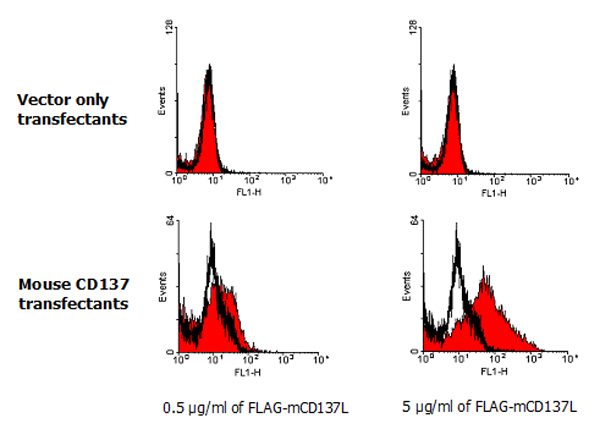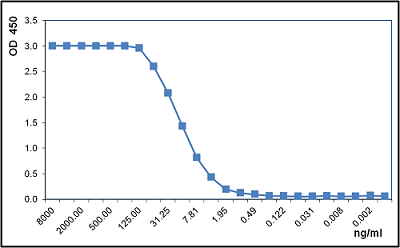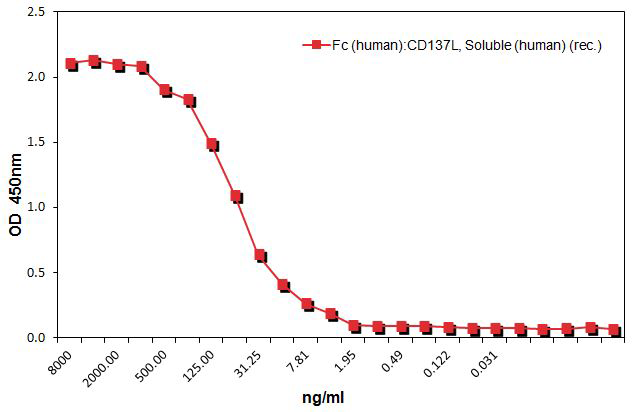
mCD137L-FLAG® binding to CD137 transfected cells.HEK 293 cells were transiently transfected with a construct encoding full-length mouse CD137. At 48hrs after transfection, the transfectants were incubated with 0.5 or 5microg/ml CD137L, Sol
CD137L, Soluble (mouse) (rec.)
AG-40A-0020Y
Protein IDP41274
Product group Proteins / Signaling Molecules
Overview
- SupplierAdipoGen Life Sciences
- Product NameCD137L, Soluble (mouse) (rec.)
- Delivery Days Customer10
- CertificationResearch Use Only
- Estimated Purity>95%
- Gene ID21950
- Target nameTnfsf9
- Target descriptiontumor necrosis factor (ligand) superfamily, member 9
- Target synonyms4-1BB-L, 4-1BBL, Cd137l, Ly63l, tumor necrosis factor ligand superfamily member 9, 4-1BB ligand
- Protein IDP41274
- Protein NameTumor necrosis factor ligand superfamily member 9
- Scientific DescriptionProtein. The extracellular domain of mouse CD137L (aa 104-309) is fused at the N-terminus to a FLAG®-tag. Source: HEK 293 cells. Endotoxin content: 95% (SDS-PAGE). The CD137 ligand (CD137L; 4-1BBL) is a member of the tumor necrosis factor (TNF) family. CD137L is a type II, transmembrane protein found on activated macrophages, dendritic cells and mature B cells. The interaction with its receptor 4-1BB induces recruitment of TNF receptor-associated factor 1 (TRAF1) and TRAF2 and interaction with the kinase p56lck. CD137 and CD137L have been reported to be involved in tumor rejection, apoptosis, anti-viral immunity, diabetes, in T and B cell co-stimulation and modulation of the immune response. - The CD137 ligand (CD137L; 4-1BBL) is a member of the tumor necrosis factor (TNF) family. CD137L is a type II, transmembrane protein found on activated macrophages, dendritic cells and mature B cells. The interaction with its receptor 4-1BB induces recruitment of TNF receptor-associated factor 1 (TRAF1) and TRAF2 and interaction with the kinase p56lck. CD137 and CD137L have been reported to be involved in tumor rejection, apoptosis, anti-viral immunity, diabetes, in T and B cell co-stimulation and modulation of the immune response.
- Storage Instruction-20°C,2°C to 8°C
- UNSPSC41116100
- SpeciesMouse




